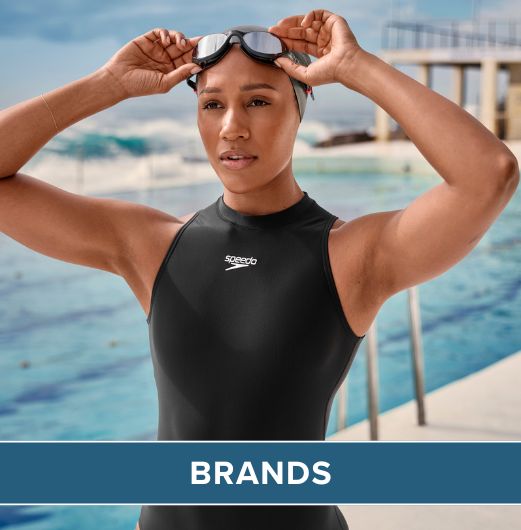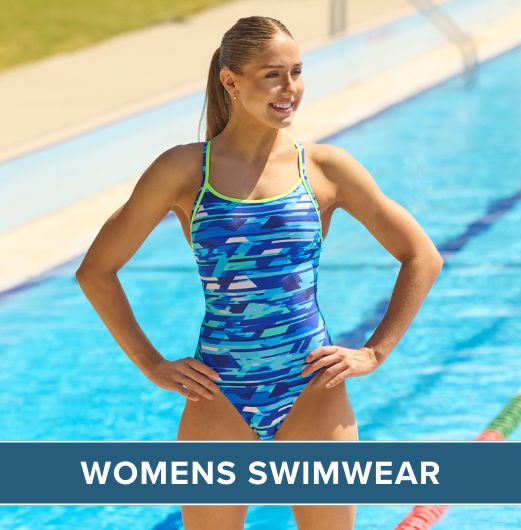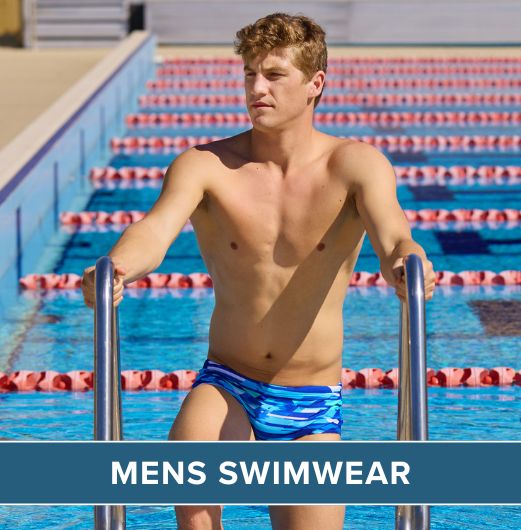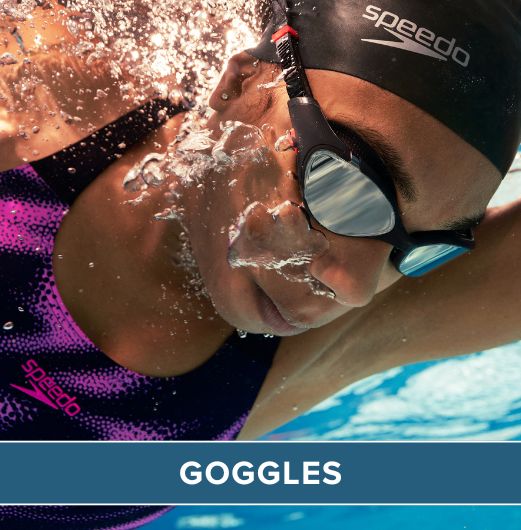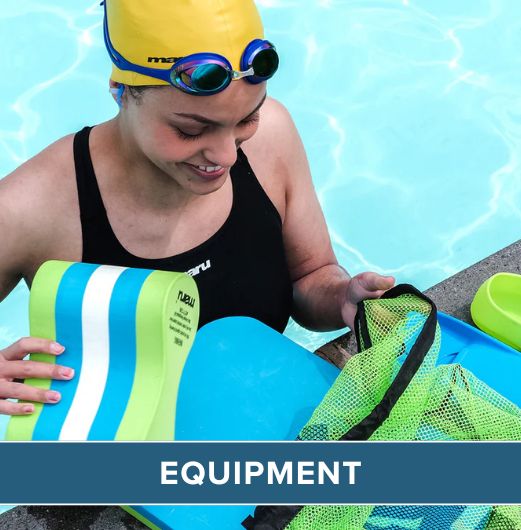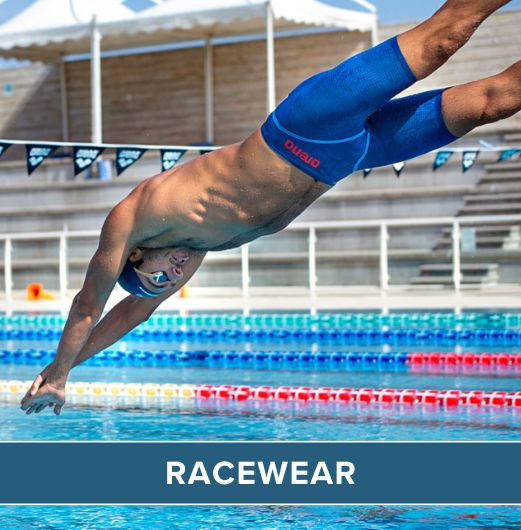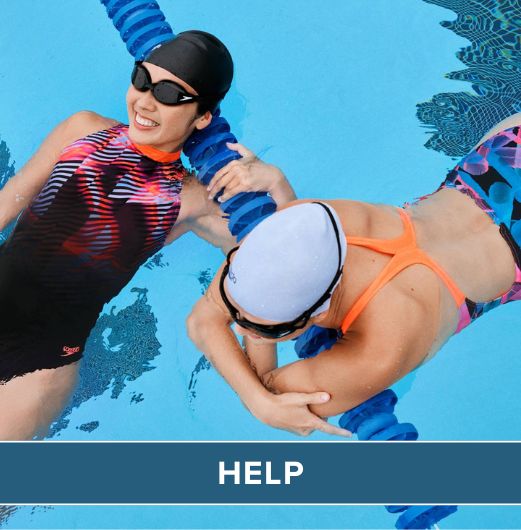 Olympics Britain's swimmers underachieved, at the 2012 Paralympics it was a very different story...
The most noticeable aspect regarding the success of Britain's swimming Paralympians was the actual age of some of the gold medal winners. Ellie Simmonds, who won two gold medals in London, on top of the two she won in Beijing, enhanced her reputation yet further, but seemed, at 17, a relative veteran compared to some of her team-mates.
15-year-old Josef Craig had such an impact at the London Paralympics that he was named Young Sports Personality of the Year. The Jarrow swimmer's achievements at the Paralympics included being the youngest gold medal winner and breaking his own record in the 400m freestyle S7 class.
At the age of 16 Jessica-Jane Applegate also won gold in London, proving that she is another fine prospect for the 2016 Paralympics in Rio. The Norfolk swimmer triumphed in the 200m freestyle S14, and, at the same time, broke the Paralympic record for the event.
The success of Britain's Paralympic swimming team was reflected in the increase in funding, which was announced recently. Funding for disability swimming has been increased from £10.5m to £11.8m, which makes it the most heavily funded British disability sport, and the investment is over a million pounds more than the next most heavily funded sport, athletics.
Paralympic success is already beginning to bear fruit at a local level, with new swimming pools being opened up round the country, which will benefit both able-bodied and disabled swimmers. With more pools being built this also makes things more convenient for Paralympians, who had previously no pool in their neighbourhood. Josef Craig recently opened a new £4m swimming pool on Tyneside, and was appreciative that he now has a high class pool to train in right on his doorstep.
In London a disability swimming club has been launched in Mile End, in East London, which is designed to attract swimmers with disabilities from all over the capital. This is one example of the legacy of the 2012 Paralympics already beginning to take shape. The legacy is not just going to benefit swimmers with disabilities, however, as the building of new swimming pools and clubs can only help improve Britain's chances of producing both Olympic and Paralympic stars of the future.
Sachsa Kindred, a British swimming star of several Paralympics, is another example of how Paralympic swimming stars are being seen as role models for children. As a Learn to Swim ambassador, Sachsa is hoping that the success of 2012 Paralympics will galvanise more and more people into taking up swimming, resulting in a greater likelihood of medals at future Paralympics and Olympics.
Probably the greatest legacy of the Paralympics of 2012 is that the lines between Paralympic and Olympic sportsmen and sportswomen are beginning to become blurred. Successful Paralympians are now becoming more recognised as gifted sporting performers, with less of an emphasis on the fact that they have a disability.
Olympics Britain's swimmers underachieved, at the 2012 Paralympics it was a very different story...
The most noticeable aspect regarding the success of Britain's swimming Paralympians was the actual age of some of the gold medal winners. Ellie Simmonds, who won two gold medals in London, on top of the two she won in Beijing, enhanced her reputation yet further, but seemed, at 17, a relative veteran compared to some of her team-mates.
15-year-old Josef Craig had such an impact at the London Paralympics that he was named Young Sports Personality of the Year. The Jarrow swimmer's achievements at the Paralympics included being the youngest gold medal winner and breaking his own record in the 400m freestyle S7 class.
At the age of 16 Jessica-Jane Applegate also won gold in London, proving that she is another fine prospect for the 2016 Paralympics in Rio. The Norfolk swimmer triumphed in the 200m freestyle S14, and, at the same time, broke the Paralympic record for the event.
The success of Britain's Paralympic swimming team was reflected in the increase in funding, which was announced recently. Funding for disability swimming has been increased from £10.5m to £11.8m, which makes it the most heavily funded British disability sport, and the investment is over a million pounds more than the next most heavily funded sport, athletics.
Paralympic success is already beginning to bear fruit at a local level, with new swimming pools being opened up round the country, which will benefit both able-bodied and disabled swimmers. With more pools being built this also makes things more convenient for Paralympians, who had previously no pool in their neighbourhood. Josef Craig recently opened a new £4m swimming pool on Tyneside, and was appreciative that he now has a high class pool to train in right on his doorstep.
In London a disability swimming club has been launched in Mile End, in East London, which is designed to attract swimmers with disabilities from all over the capital. This is one example of the legacy of the 2012 Paralympics already beginning to take shape. The legacy is not just going to benefit swimmers with disabilities, however, as the building of new swimming pools and clubs can only help improve Britain's chances of producing both Olympic and Paralympic stars of the future.
Sachsa Kindred, a British swimming star of several Paralympics, is another example of how Paralympic swimming stars are being seen as role models for children. As a Learn to Swim ambassador, Sachsa is hoping that the success of 2012 Paralympics will galvanise more and more people into taking up swimming, resulting in a greater likelihood of medals at future Paralympics and Olympics.
Probably the greatest legacy of the Paralympics of 2012 is that the lines between Paralympic and Olympic sportsmen and sportswomen are beginning to become blurred. Successful Paralympians are now becoming more recognised as gifted sporting performers, with less of an emphasis on the fact that they have a disability.
Will Disability Swimming Build on Paralympic Success
Though at the London 2012 O Olympics Britain's swimmers underachieved, at the 2012 Paralympics it was a very different story...
The most noticeable aspect regarding the success of Britain's swimming Paralympians was the actual age of some of the gold medal winners. Ellie Simmonds, who won two gold medals in London, on top of the two she won in Beijing, enhanced her reputation yet further, but seemed, at 17, a relative veteran compared to some of her team-mates.
15-year-old Josef Craig had such an impact at the London Paralympics that he was named Young Sports Personality of the Year. The Jarrow swimmer's achievements at the Paralympics included being the youngest gold medal winner and breaking his own record in the 400m freestyle S7 class.
At the age of 16 Jessica-Jane Applegate also won gold in London, proving that she is another fine prospect for the 2016 Paralympics in Rio. The Norfolk swimmer triumphed in the 200m freestyle S14, and, at the same time, broke the Paralympic record for the event.
The success of Britain's Paralympic swimming team was reflected in the increase in funding, which was announced recently. Funding for disability swimming has been increased from £10.5m to £11.8m, which makes it the most heavily funded British disability sport, and the investment is over a million pounds more than the next most heavily funded sport, athletics.
Paralympic success is already beginning to bear fruit at a local level, with new swimming pools being opened up round the country, which will benefit both able-bodied and disabled swimmers. With more pools being built this also makes things more convenient for Paralympians, who had previously no pool in their neighbourhood. Josef Craig recently opened a new £4m swimming pool on Tyneside, and was appreciative that he now has a high class pool to train in right on his doorstep.
In London a disability swimming club has been launched in Mile End, in East London, which is designed to attract swimmers with disabilities from all over the capital. This is one example of the legacy of the 2012 Paralympics already beginning to take shape. The legacy is not just going to benefit swimmers with disabilities, however, as the building of new swimming pools and clubs can only help improve Britain's chances of producing both Olympic and Paralympic stars of the future.
Sachsa Kindred, a British swimming star of several Paralympics, is another example of how Paralympic swimming stars are being seen as role models for children. As a Learn to Swim ambassador, Sachsa is hoping that the success of 2012 Paralympics will galvanise more and more people into taking up swimming, resulting in a greater likelihood of medals at future Paralympics and Olympics.
Probably the greatest legacy of the Paralympics of 2012 is that the lines between Paralympic and Olympic sportsmen and sportswomen are beginning to become blurred. Successful Paralympians are now becoming more recognised as gifted sporting performers, with less of an emphasis on the fact that they have a disability.
Olympics Britain's swimmers underachieved, at the 2012 Paralympics it was a very different story...
The most noticeable aspect regarding the success of Britain's swimming Paralympians was the actual age of some of the gold medal winners. Ellie Simmonds, who won two gold medals in London, on top of the two she won in Beijing, enhanced her reputation yet further, but seemed, at 17, a relative veteran compared to some of her team-mates.
15-year-old Josef Craig had such an impact at the London Paralympics that he was named Young Sports Personality of the Year. The Jarrow swimmer's achievements at the Paralympics included being the youngest gold medal winner and breaking his own record in the 400m freestyle S7 class.
At the age of 16 Jessica-Jane Applegate also won gold in London, proving that she is another fine prospect for the 2016 Paralympics in Rio. The Norfolk swimmer triumphed in the 200m freestyle S14, and, at the same time, broke the Paralympic record for the event.
The success of Britain's Paralympic swimming team was reflected in the increase in funding, which was announced recently. Funding for disability swimming has been increased from £10.5m to £11.8m, which makes it the most heavily funded British disability sport, and the investment is over a million pounds more than the next most heavily funded sport, athletics.
Paralympic success is already beginning to bear fruit at a local level, with new swimming pools being opened up round the country, which will benefit both able-bodied and disabled swimmers. With more pools being built this also makes things more convenient for Paralympians, who had previously no pool in their neighbourhood. Josef Craig recently opened a new £4m swimming pool on Tyneside, and was appreciative that he now has a high class pool to train in right on his doorstep.
In London a disability swimming club has been launched in Mile End, in East London, which is designed to attract swimmers with disabilities from all over the capital. This is one example of the legacy of the 2012 Paralympics already beginning to take shape. The legacy is not just going to benefit swimmers with disabilities, however, as the building of new swimming pools and clubs can only help improve Britain's chances of producing both Olympic and Paralympic stars of the future.
Sachsa Kindred, a British swimming star of several Paralympics, is another example of how Paralympic swimming stars are being seen as role models for children. As a Learn to Swim ambassador, Sachsa is hoping that the success of 2012 Paralympics will galvanise more and more people into taking up swimming, resulting in a greater likelihood of medals at future Paralympics and Olympics.
Probably the greatest legacy of the Paralympics of 2012 is that the lines between Paralympic and Olympic sportsmen and sportswomen are beginning to become blurred. Successful Paralympians are now becoming more recognised as gifted sporting performers, with less of an emphasis on the fact that they have a disability.
 Olympics Britain's swimmers underachieved, at the 2012 Paralympics it was a very different story...
The most noticeable aspect regarding the success of Britain's swimming Paralympians was the actual age of some of the gold medal winners. Ellie Simmonds, who won two gold medals in London, on top of the two she won in Beijing, enhanced her reputation yet further, but seemed, at 17, a relative veteran compared to some of her team-mates.
15-year-old Josef Craig had such an impact at the London Paralympics that he was named Young Sports Personality of the Year. The Jarrow swimmer's achievements at the Paralympics included being the youngest gold medal winner and breaking his own record in the 400m freestyle S7 class.
At the age of 16 Jessica-Jane Applegate also won gold in London, proving that she is another fine prospect for the 2016 Paralympics in Rio. The Norfolk swimmer triumphed in the 200m freestyle S14, and, at the same time, broke the Paralympic record for the event.
The success of Britain's Paralympic swimming team was reflected in the increase in funding, which was announced recently. Funding for disability swimming has been increased from £10.5m to £11.8m, which makes it the most heavily funded British disability sport, and the investment is over a million pounds more than the next most heavily funded sport, athletics.
Paralympic success is already beginning to bear fruit at a local level, with new swimming pools being opened up round the country, which will benefit both able-bodied and disabled swimmers. With more pools being built this also makes things more convenient for Paralympians, who had previously no pool in their neighbourhood. Josef Craig recently opened a new £4m swimming pool on Tyneside, and was appreciative that he now has a high class pool to train in right on his doorstep.
In London a disability swimming club has been launched in Mile End, in East London, which is designed to attract swimmers with disabilities from all over the capital. This is one example of the legacy of the 2012 Paralympics already beginning to take shape. The legacy is not just going to benefit swimmers with disabilities, however, as the building of new swimming pools and clubs can only help improve Britain's chances of producing both Olympic and Paralympic stars of the future.
Sachsa Kindred, a British swimming star of several Paralympics, is another example of how Paralympic swimming stars are being seen as role models for children. As a Learn to Swim ambassador, Sachsa is hoping that the success of 2012 Paralympics will galvanise more and more people into taking up swimming, resulting in a greater likelihood of medals at future Paralympics and Olympics.
Probably the greatest legacy of the Paralympics of 2012 is that the lines between Paralympic and Olympic sportsmen and sportswomen are beginning to become blurred. Successful Paralympians are now becoming more recognised as gifted sporting performers, with less of an emphasis on the fact that they have a disability.
Olympics Britain's swimmers underachieved, at the 2012 Paralympics it was a very different story...
The most noticeable aspect regarding the success of Britain's swimming Paralympians was the actual age of some of the gold medal winners. Ellie Simmonds, who won two gold medals in London, on top of the two she won in Beijing, enhanced her reputation yet further, but seemed, at 17, a relative veteran compared to some of her team-mates.
15-year-old Josef Craig had such an impact at the London Paralympics that he was named Young Sports Personality of the Year. The Jarrow swimmer's achievements at the Paralympics included being the youngest gold medal winner and breaking his own record in the 400m freestyle S7 class.
At the age of 16 Jessica-Jane Applegate also won gold in London, proving that she is another fine prospect for the 2016 Paralympics in Rio. The Norfolk swimmer triumphed in the 200m freestyle S14, and, at the same time, broke the Paralympic record for the event.
The success of Britain's Paralympic swimming team was reflected in the increase in funding, which was announced recently. Funding for disability swimming has been increased from £10.5m to £11.8m, which makes it the most heavily funded British disability sport, and the investment is over a million pounds more than the next most heavily funded sport, athletics.
Paralympic success is already beginning to bear fruit at a local level, with new swimming pools being opened up round the country, which will benefit both able-bodied and disabled swimmers. With more pools being built this also makes things more convenient for Paralympians, who had previously no pool in their neighbourhood. Josef Craig recently opened a new £4m swimming pool on Tyneside, and was appreciative that he now has a high class pool to train in right on his doorstep.
In London a disability swimming club has been launched in Mile End, in East London, which is designed to attract swimmers with disabilities from all over the capital. This is one example of the legacy of the 2012 Paralympics already beginning to take shape. The legacy is not just going to benefit swimmers with disabilities, however, as the building of new swimming pools and clubs can only help improve Britain's chances of producing both Olympic and Paralympic stars of the future.
Sachsa Kindred, a British swimming star of several Paralympics, is another example of how Paralympic swimming stars are being seen as role models for children. As a Learn to Swim ambassador, Sachsa is hoping that the success of 2012 Paralympics will galvanise more and more people into taking up swimming, resulting in a greater likelihood of medals at future Paralympics and Olympics.
Probably the greatest legacy of the Paralympics of 2012 is that the lines between Paralympic and Olympic sportsmen and sportswomen are beginning to become blurred. Successful Paralympians are now becoming more recognised as gifted sporting performers, with less of an emphasis on the fact that they have a disability.
 Free Tracked UK Delivery
Free Tracked UK Delivery Hassle Free Returns
Hassle Free Returns Next Working Day OPTION
Next Working Day OPTION Found It Cheaper?
Found It Cheaper?



